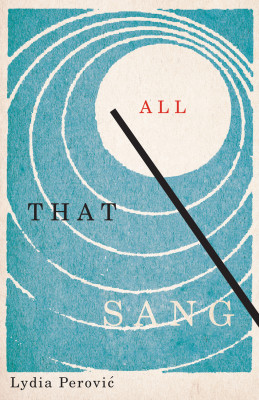In just over a hundred pages, All That Sang is many things. It is a tale of two cities, opening with a subtle, cinematic description of the rooftops of Paris before leading the reader down into the streets, evoking a morning’s gathering activity. The other city is Toronto, which appears from time to time, usually in counterpoint to the French capital. But, as the very first line suggests, the dawn that reveals the buildings and sidewalks is not merely the break of day; it is an emotional break that sets the tone for the novella as the city emerges from “the impenetrable fog of sorrow.” Paris is not simply a history-laden assemblage of stones, but the site of a romantic obsession.
Our unnamed protagonist is an opera critic. The object of her desire is a conductor, one of few women to succeed in a field dominated by men. Having moved from Toronto to Paris to be nearer her lover, the protagonist finds herself still not near enough. While the conductor conducts her way around Europe, her little dog accompanying her in a carrier, the protagonist is left behind, consumed by memories, waiting “agonizing weeks” for a “taste” of her lover. In anticipation of the conductor’s return, she concocts a meal of creamy white substances (gnocchi in cheese sauce, clam chowder, champagne flutes of almond milk), an allusive menu for a woman dreaming of female arousal.

All That Sang
Lydia Perović
Esplanade Books
$17.95
paper
107pp
9781550654387
The novella is also a tale of two languages, playful and lyrical. French terms are integrated into the English text, which bilingual readers may find nicely reflects their experience; this is one of the pleasures of the text. Another is the protagonist’s musings on the two languages: “Le pantalon is better than either trousers or pants. Fact.”
But even as the slippage between languages and other textual friskiness (puns, passages in Latin and in Cyrillic characters, sections in Q and A format, neologisms such as the excellent description of Parisian breakfast items as “butterthings”) enrich what might otherwise be a fairly thin plot, grammatical quirks create awkwardness for the reader. While some of these quirks (such as a transitive verb used as if intransitive) may be intended to convey the intrusions of other languages on the English of the narration, others seem more like mistakes (for example, lack of agreement in number or tense). Typographical and usage errors create further doubts. In such a playful and language-conscious text, one wants to know what idiosyncrasies the author intended, in order to consider their roles in the text. Of course, no book will be totally free of mistakes, but when so much of the value of a text lies in its hyperconsciousness of language(s) and clever language play, one must be a extremely, shall we say, exigeant.
Narrated as the protagonist boards the wrong train to catch her return flight to Toronto, All That Sang does offer some closure. The protagonist has loved and lost, but she has found a way to circumscribe her grief, fixing it in the details of the city and the time in which the story took place. As it ends, a friendly stranger helps her find the right train. She is on her way home. mRb






0 Comments